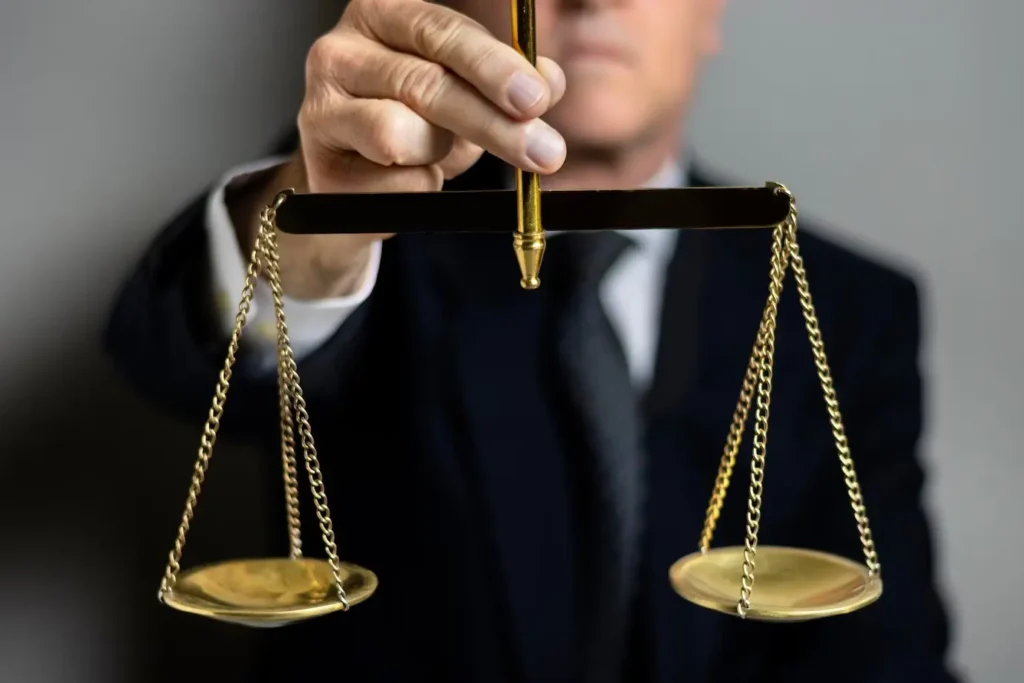
Introduction
Suffering an injury due to someone else’s negligence can be a harrowing experience. Whether it’s a car accident, medical malpractice, or a slip and fall incident, seeking compensation and justice often requires legal intervention. Selecting the right personal injury lawyer is pivotal in securing a favorable outcome. This guide aims to navigate the complexities of this process, offering insights on selecting the ideal legal representation for your case.
Understanding Personal Injury Law
Before delving into selecting a lawyer, it’s crucial to understand personal injury law. This legal realm encompasses cases where an individual suffers harm due to another party’s negligence. These cases cover a wide spectrum, including but not limited to:
- Traffic Accidents: Injuries resulting from car, truck, motorcycle, or pedestrian accidents.
- Premises Liability: Injuries sustained on someone else’s property due to unsafe conditions.
- Product Liability: Harm caused by defective products.
- Medical Malpractice: Injuries due to healthcare provider negligence.
- Workplace Accidents: Injuries sustained while on the job due to employer negligence.
Steps in Choosing the Right Personal Injury Lawyer
1. Assessing Experience and Specialization
Begin by evaluating a lawyer’s experience in handling cases similar to yours. Seek a specialist in personal injury law with a proven track record of successful cases. A lawyer who understands the intricacies of your specific situation will be better equipped to navigate the legal process efficiently.
2. Reviewing Credentials and Reputation
Verify the lawyer’s credentials, including their educational background, bar association standing, and any accolades or certifications. Equally important is assessing their reputation check online reviews, testimonials, and any disciplinary actions against them.
3. Consider Trial Experience
While most cases settle out of court, having a lawyer experienced in trials can be advantageous. Their trial experience showcases their willingness to fight for your rights and negotiate from a position of strength if needed.
4. Communication and Accessibility
Effective communication is paramount in legal proceedings. Ensure the lawyer is accessible and willing to keep you informed about your case’s progress. A transparent and communicative attorney can alleviate anxieties associated with the legal process.
5. Fee Structure and Payment
Discuss the lawyer’s fee structure upfront. Many personal injury lawyers work on a contingency fee basis, meaning they only get paid if you win the case. Ensure you understand the percentage they’ll take from the settlement or judgment, as well as any additional costs.
6. Comfort Level and Trust
Trust your instincts during initial consultations. A lawyer may have impressive credentials, but if there’s a lack of trust or compatibility, it can hinder the attorney-client relationship. Choose someone with whom you feel comfortable discussing personal details and concerns.
7. Assessing Resources
Adequate resources are crucial in pursuing a personal injury case. Ensure the lawyer or law firm has the necessary resources, such as access to expert witnesses or investigative teams, to strengthen your case.
Questions to Ask During Initial Consultations
Prepare a list of pertinent questions to ask during your initial meeting with a potential lawyer:
- Experience: How long have you been practicing personal injury law?
- Case Strategy: What approach do you propose for my case?
- Communication: How often will you update me on the case’s progress?
- Potential Outcomes: What are the possible outcomes for my case?
- Fees and Costs: What is your fee structure, and what additional costs may arise?
- References: Can you provide references from past clients with similar cases?

Legal Support from a Personal Injury Lawyer
Suffering a personal injury can be a life-altering experience, impacting not just physical health but also causing emotional and financial distress. Amidst this turmoil, seeking legal support from a qualified personal injury lawyer can significantly aid in the recovery process.
Personal injury lawyers specialize in representing individuals who have been injured due to the negligence or intentional actions of others. Their primary goal is to seek justice and fair compensation for the injured party. These legal professionals handle various types of cases, including but not limited to:
Support Through Legal Expertise
1. Navigating Complex Legal Procedures
Personal injury law involves intricate legal procedures and nuances that can be overwhelming for someone dealing with an injury. A lawyer serves as a guide through these complexities, handling paperwork, deadlines, and legal proceedings on behalf of the injured party. This support allows the injured person to focus on recovery.
2. Evaluation of Claims
Assessing the value of a personal injury claim requires a deep understanding of legal precedents, medical expenses, lost wages, and the overall impact of the injury on the individual’s life. A skilled lawyer can accurately evaluate the claim’s worth and negotiate for fair compensation.
3. Building a Strong Case
Gathering evidence, interviewing witnesses, consulting experts, and analyzing medical records are crucial elements in building a strong case. A personal injury lawyer possesses the expertise to collect and present evidence effectively, strengthening the client’s position.
4. Negotiation and Settlement
Most personal injury cases are settled out of court through negotiations. A seasoned lawyer adept at negotiation can secure a fair settlement that covers medical bills, lost wages, pain and suffering, and future expenses.
Emotional and Practical Support
1. Emotional Guidance
An injury can take a toll on mental health. A compassionate personal injury lawyer not only provides legal counsel but also offers emotional support, guiding the injured person through the legal process and offering reassurance during challenging times.
2. Access to Resources
Experienced personal injury lawyers have access to a network of resources. They can connect their clients with medical professionals, rehabilitation services, and other resources necessary for recovery and well-being
Conclusion
Selecting the right personal injury lawyer requires careful consideration and research. By assessing their experience, credentials, communication, and resources, you can make an informed decision. Remember, the attorney you choose will be your advocate throughout the legal process, so choose wisely to secure the best possible outcome for your case. Navigating legal challenges following a personal injury is challenging, but with the right legal representation, you can seek the compensation and justice you deserve.
The journey toward recovery after a personal injury is multifaceted, encompassing physical, emotional, and financial aspects. A skilled personal injury lawyer acts as a beacon of support, offering legal expertise, guidance, and advocacy throughout this challenging journey. Their role extends beyond legal representation; they become a crucial ally in the pursuit of justice and the rebuilding of a life impacted by injury.
